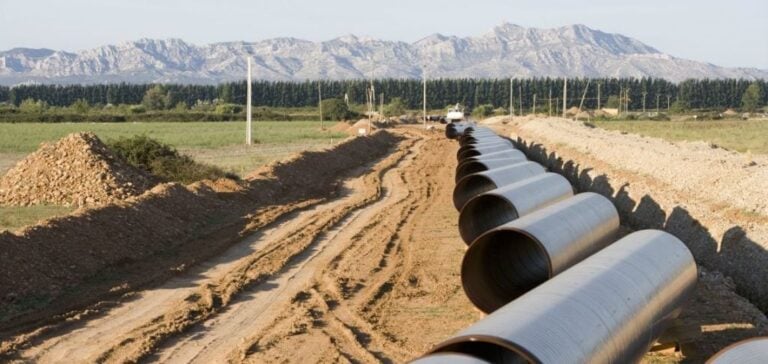This autumn, Italy is unveiling a hydrogen corridor project, SudH2, aimed at transporting renewable hydrogen from the southern Mediterranean to northern Europe.
Switzerland could also participate in this initiative, according to recent statements by the Italian Minister for the Environment and Energy Security, Gilberto Pichetto Fratin.
A Pan-European Hydrogen Transport Project
The SudH2 Corridor is designed to link North Africa, Italy, Austria and Germany, facilitating the transport of hydrogen produced from renewable sources from the southern Mediterranean to European industries.
The project, involving Italian gas network operator Snam, was granted priority status by the European Commission last year.
Italy will host an official event in Rome this autumn to present the project.
The initiative is part of Europe’s strategy to boost the production and import of renewable hydrogen, seen as a key element in reducing the use of fossil fuels in industrial processes such as steel production.
Collaboration and Infrastructure
Collaboration extends beyond Italy’s borders, with Trans Austria Gasleitung (TAG), Gas Connect Austria (GCA) and Bayernets in Germany working jointly with Snam on this 3,300 km project.
The corridor could import over 4 million tonnes of hydrogen per year from North Africa, representing 40% of the European Union’s 2030 import target.
According to forecasts, the pipeline could be operational as early as 2030.
Existing connections with Libya and Tunisia could also be integrated into the corridor, offering greater flexibility for hydrogen transport.
Another possibility would be to convert the hydrogen into ammonia before shipping it to Europe, thus offering a logistical alternative.
Impact and outlook
In addition to meeting the EU’s decarbonization objectives, the SudH2 project could transform Europe’s energy landscape.
Last May, the energy ministers of Italy, Austria and Germany signed a cooperation agreement as part of the EU’s strategy to decarbonize industry.
Switzerland could also play a crucial role in this project, offering an additional connection via Austria.
This development builds on preliminary discussions held last year between Italy and the Bavarian government to supply gas and hydrogen to this southern German state.
In addition to its ecological benefits, this project represents a major economic opportunity for the countries involved, by strengthening energy infrastructures and opening up new markets for renewable hydrogen.






















